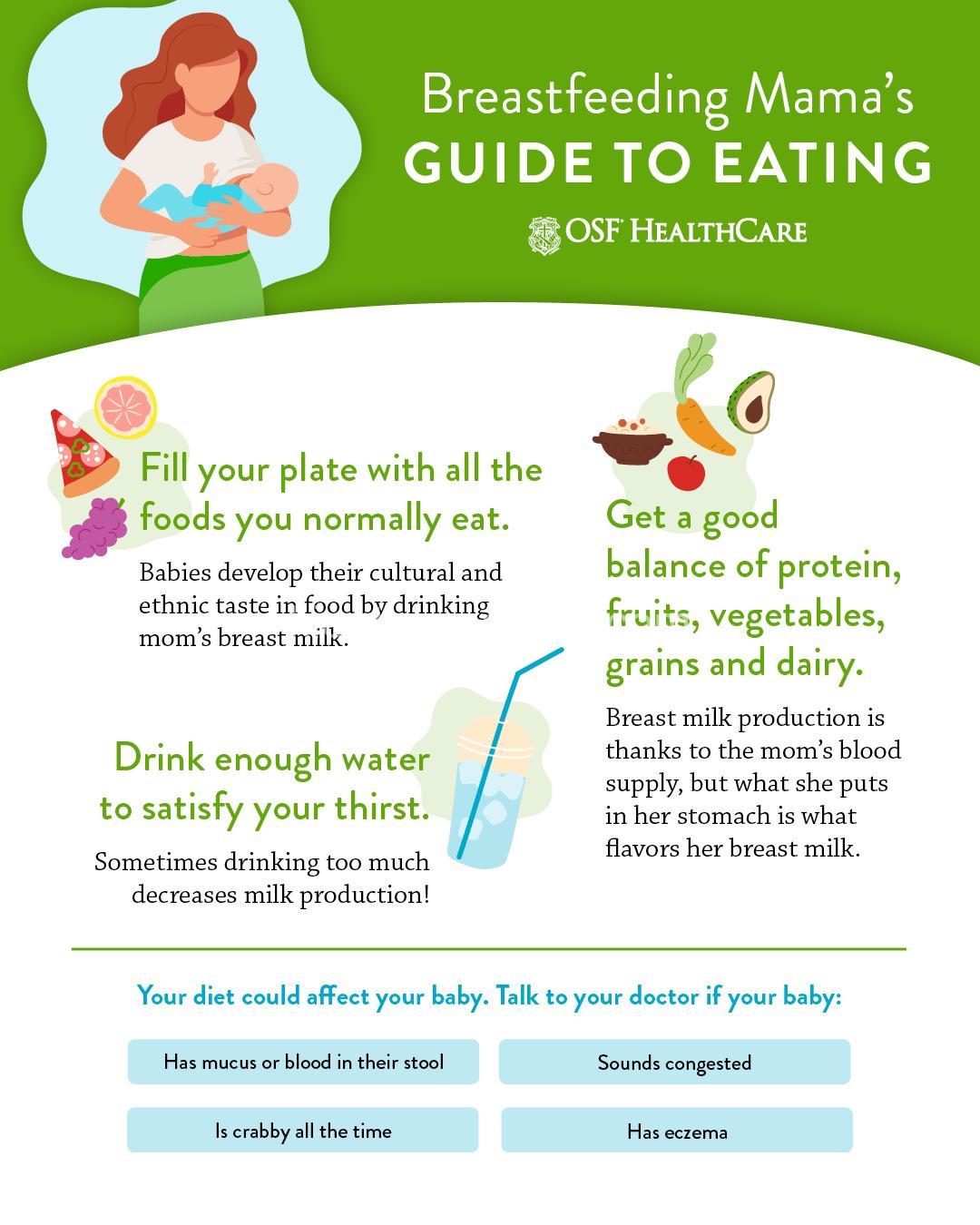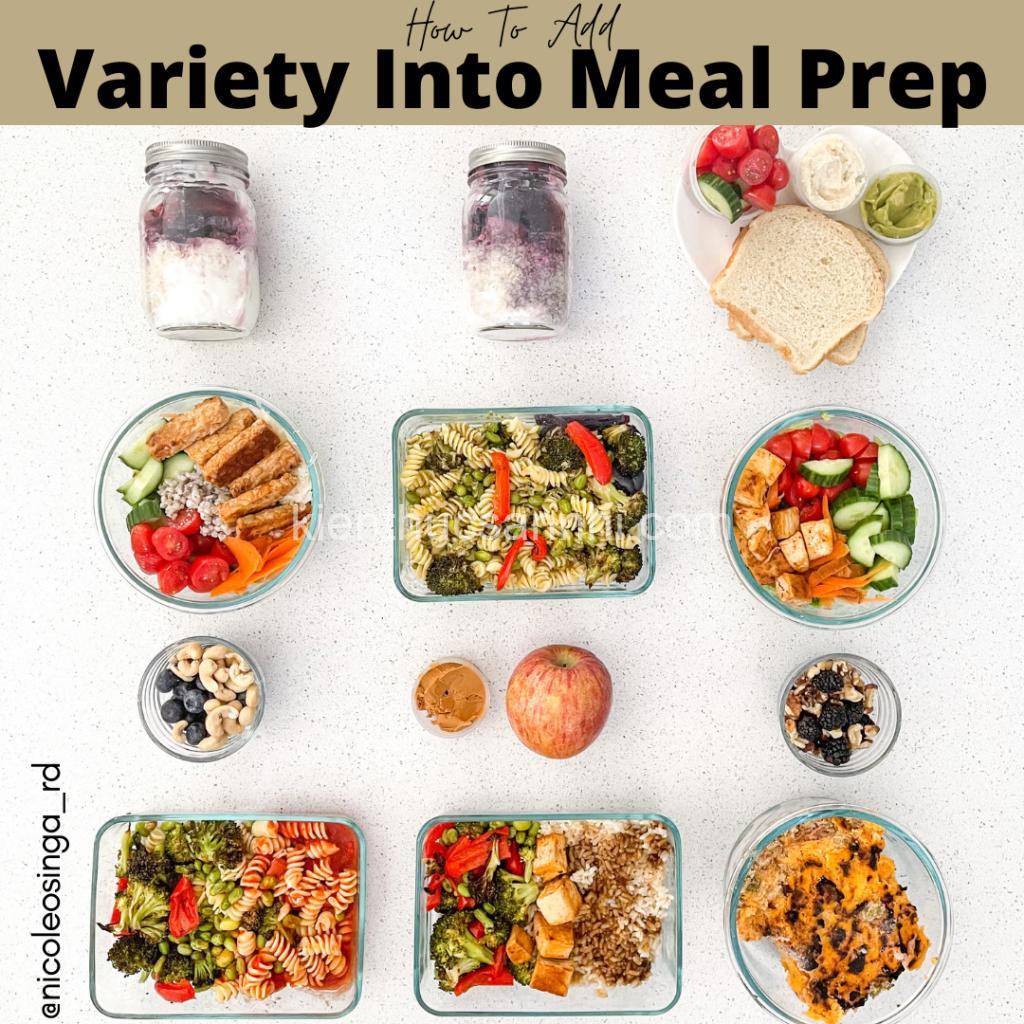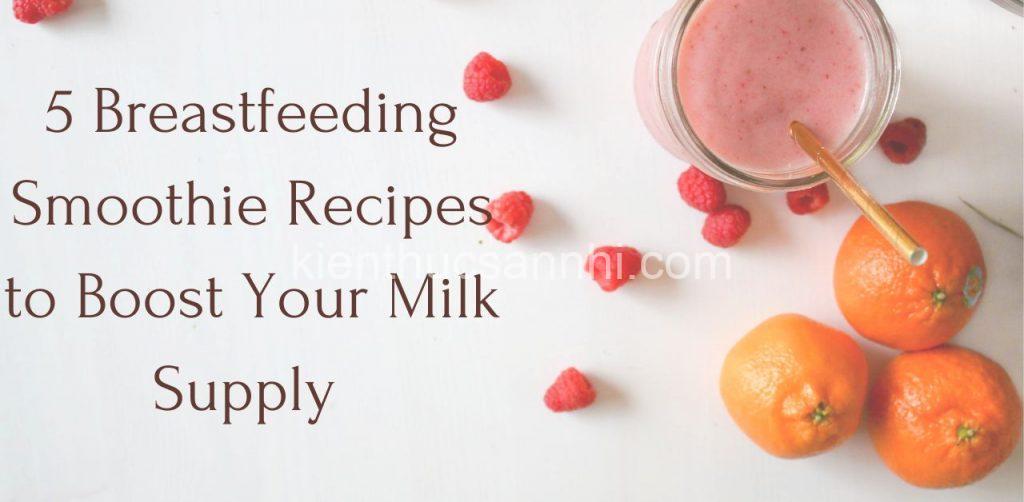
Safe Meals for Breastfeeding Moms: Food Safety & Diet Guidelines. In today’s article, kienthucsannhi.com will explore with you in the most detailed and complete way. See now!
Understanding Food Safety During Breastfeeding
Every breastfeeding mother wants to provide the best possible nutrition for her baby. This includes understanding how food choices can impact both the mother’s health and the baby’s development. A safe and nutritious diet plays a crucial role in ensuring a smooth and successful breastfeeding journey.
First and foremost, it’s essential to understand the link between a mother’s diet and the composition of her breast milk. Certain foods can pass through breast milk, potentially affecting the baby’s digestive system or even triggering allergies. For example, caffeine, alcohol, and spicy foods can all have an impact on the baby’s digestion, causing fussiness or discomfort.
Additionally, allergens can be transmitted through breast milk. Introducing certain foods to your baby early on may increase the likelihood of developing food allergies. It’s crucial to be cautious about common allergens like peanuts, tree nuts, dairy, soy, eggs, wheat, and seafood.
Foodborne illnesses are another concern. Consuming contaminated foods can pose risks to both mother and baby. Always prioritize proper food handling, cooking, and storage techniques to minimize the risk of foodborne illness.

Essential Dietary Guidelines for Breastfeeding Mothers
Understanding the importance of food safety is just the first step. The next step is to establish a healthy and balanced diet that provides the necessary nutrients for both you and your baby.
Staying Hydrated: Drinking plenty of water is crucial for breastfeeding mothers. Hydration is essential for milk production and overall well-being. Aim for at least eight glasses of water per day.
Nutritious Food Choices: Your diet should include a wide variety of nutrient-rich foods, including:
- Fruits: Apples, bananas, berries, oranges, pears, etc.
- Vegetables: Broccoli, carrots, spinach, sweet potatoes, etc.
- Whole grains: Brown rice, quinoa, oats, whole-wheat bread, etc.
- Lean proteins: Chicken, fish, beans, lentils, tofu, etc.
- Healthy fats: Avocado, nuts, seeds, olive oil, etc.
Foods to Avoid or Limit:
- Common Allergens: It’s recommended to introduce these foods one at a time and observe your baby for any signs of allergies or sensitivities.
- Foods that Impact Milk Supply: While there’s no definitive evidence, certain foods like caffeine and alcohol may potentially decrease milk supply.
- Foods that Cause Gastrointestinal Issues: Spicy foods, caffeine, and alcohol can all affect your baby’s digestion.
Introducing Solids to Your Baby
Once your baby is ready for solid foods, it’s time to introduce them safely and gradually. The recommended age to start introducing solids is around 4-6 months.
The Baby-Led Weaning Approach: This approach allows your baby to self-feed with soft, finger-sized pieces of food. This encourages independent eating and helps your baby develop fine motor skills.
Safe and Healthy Solid Food Introductions:
- Start with single-ingredient foods, like pureed fruits or vegetables.
- Introduce new foods one at a time, allowing a few days between each new food.
- Observe your baby for any signs of allergies or sensitivities.
Delicious and Baby-Friendly Recipe Ideas
Don’t let the thought of preparing baby-friendly meals overwhelm you! There are plenty of delicious and easy recipes that are perfect for breastfeeding moms and their babies.
Simple Meal Planning:
- Smoothies: Blend fruits, vegetables, and yogurt for a quick and nutritious meal.
- Soups and Stews: Packed with vegetables and lean proteins.
- Casseroles: Easy to prepare in advance and can be reheated throughout the week.
Baby-Friendly Adaptations:
- Puree foods: Use a food processor or blender to create smooth textures.
- Steam or roast vegetables: For tender textures that are easy to chew.
- Limit added salt and sugar: Focus on natural flavors.
Consultations and Resources for Breastfeeding Mothers
If you have any questions or concerns about your diet or baby’s nutrition, it’s essential to seek advice from a healthcare professional.
Importance of Consultations:
- Pediatrician: Your baby’s doctor can provide personalized advice on dietary needs and food introduction.
- Registered Dietitian: A dietitian can offer guidance on creating a balanced and nutritious diet for breastfeeding mothers.
Reputable Websites and Organizations:
- World Health Organization (WHO)
- La Leche League International
- Academy of Breastfeeding Medicine
Ensuring Your Baby’s Well-being Through Safe Eating
A safe and healthy diet is essential for breastfeeding mothers. By prioritizing food safety, choosing nutritious foods, and introducing solids responsibly, you can ensure a happy and healthy journey for both you and your baby.
For more information on breastfeeding and infant nutrition, visit kienthucsannhi.com. Join the conversation by leaving comments, sharing your experiences, and reading other valuable articles on our website!
FAQs
What are some foods that I should avoid while breastfeeding?
It’s essential to avoid or limit certain foods during breastfeeding. These include:
- Common Allergens: Peanuts, tree nuts, dairy, soy, eggs, wheat, seafood.
- Foods that Impact Milk Supply: Caffeine and alcohol.
- Foods that Cause Gastrointestinal Issues: Spicy foods, caffeine, and alcohol.
- Unpasteurized Foods: Raw milk, soft cheeses, and unpasteurized juices.
- Raw Meat and Fish: Undercooked or raw meat and fish.
When should I introduce solids to my baby?
The recommended age to start introducing solids is around 4-6 months. Observe your baby’s developmental cues, such as sitting upright with head control and showing interest in food.
What are some tips for safe solid food introductions?
- Start with single-ingredient foods: Pureed fruits or vegetables.
- Introduce new foods one at a time: Allow a few days between each new food.
- Observe your baby for any signs of allergies or sensitivities: Rashes, vomiting, diarrhea.
- Offer small portions: Start with teaspoons and gradually increase as your baby’s appetite grows.
- Encourage self-feeding: Use baby-sized utensils or let your baby explore food with their hands.
How can I modify existing recipes to make them baby-friendly?
- Puree foods: Use a food processor or blender to create smooth textures.
- Steam or roast vegetables: For tender textures that are easy to chew.
- Limit added salt and sugar: Focus on natural flavors.
- Avoid small or hard foods: These can pose choking hazards.
Conclusion
As a breastfeeding mother, your diet plays a vital role in your baby’s health and development. By understanding food safety, following dietary guidelines, and introducing solids responsibly, you can provide the best possible nutrition for your little one. Remember, consistency and a supportive community are key to a successful breastfeeding journey. For more tips and resources, visit kienthucsannhi.com and share your experiences with other parents!
Entity-Attribute-Value (EAV):
- Entity: Breastfeeding, Attribute: Duration, Value: 6-12 months (recommended)
- Entity: Baby food, Attribute: Introduction age, Value: 4-6 months (recommended)
- Entity: Allergens, Attribute: Examples, Value: Peanuts, tree nuts, dairy, soy, eggs, wheat, seafood
- Entity: Food safety, Attribute: Practices, Value: Washing hands, proper cooking, safe storage
- Entity: Milk supply, Attribute: Effect of diet, Value: Certain foods may decrease or increase supply
- Entity: Gastrointestinal issues, Attribute: Cause, Value: Spicy foods, caffeine, alcohol
- Entity: Food sensitivities, Attribute: Symptoms, Value: Rashes, vomiting, diarrhea
- Entity: Foodborne illness, Attribute: Prevention, Value: Avoid unpasteurized foods, raw meat/fish
- Entity: Baby-led weaning, Attribute: Advantages, Value: Encourages self-feeding, develops independence
- Entity: Lactation, Attribute: Nutrient needs, Value: Increased protein, calcium, vitamin D
- Entity: Dietary restrictions, Attribute: Types, Value: Vegetarian, vegan, religious diets
- Entity: Food, Attribute: Types to avoid, Value: Raw shellfish, unpasteurized cheese, undercooked meat
- Entity: Baby, Attribute: Developmental stage, Value: Factors in food introduction
- Entity: Nutrition, Attribute: Importance, Value: Growth, development, health
- Entity: Health, Attribute: Overall well-being, Value: Affected by mother’s diet
- Entity: Safety, Attribute: Prioritization, Value: Food safety, allergy awareness
- Entity: Recipes, Attribute: Types, Value: Baby-friendly, breastfeeding-friendly
- Entity: Meal ideas, Attribute: Examples, Value: Smoothies, soups, stews, casseroles
- Entity: Expert consultations, Attribute: Importance, Value: Personalized advice, support
- Entity: Resources, Attribute: Types, Value: Websites, organizations, books
Entity-Relation-Entity (ERE):
- Entity: Breastfeeding, Relation: Influenced by, Entity: Diet
- Entity: Baby food, Relation: Introduced at, Entity: Age
- Entity: Food safety, Relation: Essential for, Entity: Breastfeeding
- Entity: Allergens, Relation: Can cause, Entity: Reactions in babies
- Entity: Milk supply, Relation: Affected by, Entity: Certain foods
- Entity: Gastrointestinal issues, Relation: Caused by, Entity: Some foods
- Entity: Food sensitivities, Relation: May result in, Entity: Symptoms
- Entity: Foodborne illness, Relation: Caused by, Entity: Contaminated food
- Entity: Baby-led weaning, Relation: Supports, Entity: Independence
- Entity: Lactation, Relation: Requires, Entity: Adequate nutrition
- Entity: Dietary restrictions, Relation: May influence, Entity: Food choices
- Entity: Food, Relation: Avoid, Entity: Unpasteurized products
- Entity: Baby, Relation: Reacts to, Entity: New foods
- Entity: Nutrition, Relation: Essential for, Entity: Growth and development
- Entity: Health, Relation: Affected by, Entity: Mother’s diet
- Entity: Safety, Relation: Priority for, Entity: Breastfeeding and baby
- Entity: Recipes, Relation: Provide, Entity: Safe and nutritious meals
- Entity: Meal ideas, Relation: Offer, Entity: Flexibility
- Entity: Expert consultations, Relation: Provide, Entity: Personalized advice
- Entity: Resources, Relation: Offer, Entity: Reliable information
Semantic Triple:
- Subject: Breastfeeding, Predicate: Influenced by, Object: Diet
- Subject: Baby food, Predicate: Introduced at, Object: Age
- Subject: Food safety, Predicate: Essential for, Object: Breastfeeding
- Subject: Allergens, Predicate: Can cause, Object: Reactions in babies
- Subject: Milk supply, Predicate: Affected by, Object: Certain foods
- Subject: Gastrointestinal issues, Predicate: Caused by, Object: Some foods
- Subject: Food sensitivities, Predicate: May result in, Object: Symptoms
- Subject: Foodborne illness, Predicate: Caused by, Object: Contaminated food
- Subject: Baby-led weaning, Predicate: Supports, Object: Independence
- Subject: Lactation, Predicate: Requires, Object: Adequate nutrition
- Subject: Dietary restrictions, Predicate: May influence, Object: Food choices
- Subject: Food, Predicate: Avoid, Object: Unpasteurized products
- Subject: Baby, Predicate: Reacts to, Object: New foods
- Subject: Nutrition, Predicate: Essential for, Object: Growth and development
- Subject: Health, Predicate: Affected by, Object: Mother’s diet
- Subject: Safety, Predicate: Priority for, Object: Breastfeeding and baby
- Subject: Recipes, Predicate: Provide, Object: Safe and nutritious meals
- Subject: Meal ideas, Predicate: Offer, Object: Flexibility
- Subject: Expert consultations, Predicate: Provide, Object: Personalized advice
- Subject: Resources, Predicate: Offer, Object: Reliable information





